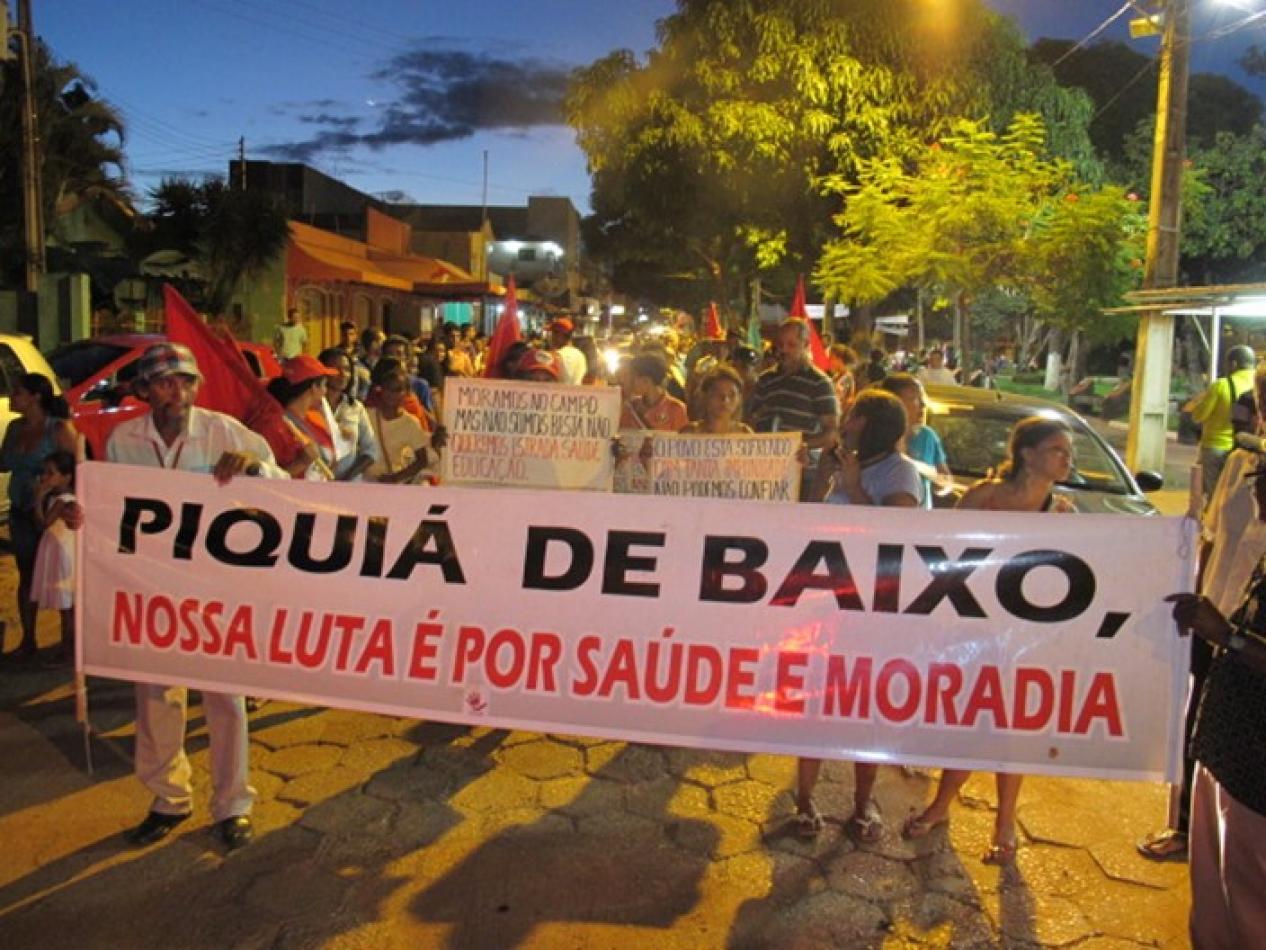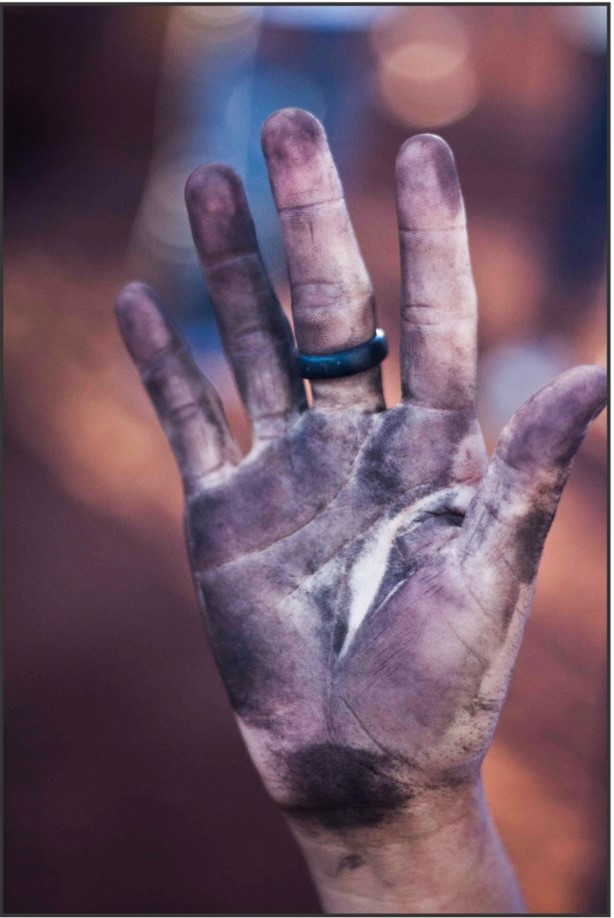Daniel Comboni
Comboni Missionaries
Institutional area
Other links
Newsletter
Saturday, September 4, 2021
The Comboni Missionaries in Brazil have taken on the priority of defending socio-environmental rights and have been carrying it out structurally for 14 years, in the Carajás region, through the actions of the "Justiça nos Trilhos" network. We are learning every day, together with the people, to take up the challenges and the dream of Integral Ecology, in an Amazon that is increasingly under threat. Journey with us!
SEE
Comboni missionaries’ experience: Piquiá de Baixo. The dream of every community is to live well integrated in its territory, in peace, so that future generations will have a full life.
Piquiá is a small community of migrant farmers who settled in the water-rich, fertile Amazon region. They came from the dry regions of the country and sought new opportunities for life. The culture of the time was to deforest and conquer virgin territories; we don't know if they would have managed to fit in while preserving at least a minimum of that pulsating ecosystem: they didn't have time to try.
About fifteen years after them came the Carajás mining project: the largest open-pit iron mine in the world, discovered in the heart of the Amazon, 300 km from Piquiá. A whole infrastructure was set up to export the ore and the first processing was done in Brazil. The dirty part of the work had to stay on this side of the ocean, while the resources were exported to China, Japan, the United States and Europe. In Piquiá, five steel plants were installed around the farmers' houses, without the slightest respect for social and environmental rights. The consequences were quickly felt: allergies, headaches, constant fever, lung diseases, burns and deaths. Living with dust and smog became habitual. People had to put up with it because, in return, these industries 'brought economic dynamism to the city'.
This type of enclave economy, concentrated on a single production and export-oriented, sacrifices the poor, exposes the entire region to frequent crises of instability in international markets, stifles economic diversification, damages the environment and jeopardizes the future. The disproportion of forces with big multinational capital divided the community, indignant but powerless. Some came to the Church for help. They challenged us to understand that our mission of religious service, worship or ordinary pastoral work must be linked to this reality, articulated and committed to protect and promote life, to bring about an encounter with the Risen Lord in the concrete reality of the dramatic situations in which people live. We accepted the challenge and we are learning together how to live it.
We have sought the collaboration of competent people and institutions. Many initiatives were born: protest demonstrations, sit-ins, public hearings, visibility of the case on a national and international level, exchanges with other communities, formal complaints and compensation processes, research by biologists, doctors, international foundations for the defence of human rights, participation in sessions of the UN Human Rights Council and the Inter-American Human Rights Commission, on-site visits and reports by UN special rapporteurs.
The Church organized a large "Romaria", a celebration with people from all over the region and 10 bishops, in prayer, solidarity and denunciation.
The first compensations have arrived, although justice is very slow. In 2012, the multinational company Vale was recognized as the worst company in the world, because of this and many other conflicts. Every year, we participate as critical shareholders in its General Assembly, denouncing many human and environmental rights violations. We have also launched a campaign for religious organisations to withdraw their investments from mining.
For years, a project has been underway to move the whole village to an unpolluted area. We are at 30% of its construction.
Companies and the government are still working in the slums to divide and weaken the community. We have experienced various conflicts and we still feel strong limitations and fragility, but we have matured along the way and some leaders are strong and determined.
The Comboni Missionaries in Brazil have taken on the priority of defending socio-environmental rights and have been carrying it out structurally for 14 years, in the Carajás region, through the actions of the "Justiça nos Trilhos" network.
We are learning every day, together with the people, to take up the challenges and the dream of Integral Ecology, in an Amazon that is increasingly under threat. Journey with us!
DISCERN
Insights for a biblical-ecological reflection on the readings of Sunday 5 September
OIKONOME: A JUST HOME FOR ALL PEOPLE
Proverbs 22:1-2, 8-9, 22-23; Psalm 125: 1-5; James 2: 1-10, 14-17; Marc 7: 24-37
= Oikos, the Greek word for ‘home’, is the root word for ‘economy’ – which, at a global level, is about planetary house-keeping. How far have modern understandings of the importance of the economy drifted from the root meaning of creating a secure and just home for all?
= Proverbs 22 and James 2 make clear that God will champion the cause of the oppressed, and that poverty and injustice are deeply linked to our economic behaviour and systems.
= In a world of climate injustice, where careless use of fossil fuels leads to insecurity, disaster and suffering for the world’s poor and marginalised, what is the ‘good news’ (the Gospel)? Can there be good news without addressing such injustice?
= James 2:6 “Is it not the rich who are exploiting you? Are they not the ones who are dragging you into court?” Is this passage aimed only at the ‘super rich’ or also at the many Christians who live comfortable lives, acting as if they (we?) are ignorant of the links between that comfort –built on exploitative and unsustainable economic practices -and the suffering of the poor?
= In Mark 7:28-29, Jesus commends the Syro-Phoenician (a woman and a Gentile) for arguing with him and heals her daughter! Are there issues of injustice, where God seems silent, that drive us to wrestle with God in prayer?
ACT
Join and promote the campaign for divestment from fossil fuels! Click here to read more.





